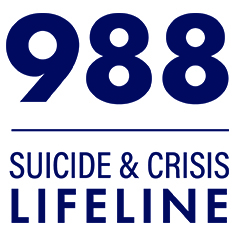This course teaches the fundamentals of effective violence prevention methods and incorporates the growing body of research on effective practices. The training, which offers continuing education credits through CDD, discusses key concepts of primary prevention, the public health approach, and the social-ecological model. Participants complete interactive exercises to learn to help prevent five types of violence: child abuse and neglect, intimate partner violence, sexual violence, suicide and youth violence.
Resource Types: Training
Suicide Detection and Prevention in Jails
Online training course for Texas peace officers and jailers. Eight hours long and costs $45.
Understanding evidence

Understanding Evidence is meant to support critical thinking skills in practitioners to help them make evidence-informed decisions around violence prevention. Specifically, upon completion of Understanding Evidence the learner will be able to: 1. define the three types of evidence involved in evidence based decision-making; 2. identify standards of rigor across the key dimensions that make up the best available research evidence; 3. identify sources of and ways to collect best available research evidence, contextual evidence, and experiential evidence; and 4. identify key stages and characteristics of an evidence based decision-making process. CEUs are available.
Treating the invisible wounds of war
This series of three online courses series is designed to assist primary care physicians, case workers, mental health providers – who may see a veteran or family member on an unrelated issue – develop a better understanding of the culture in which veterans and their families live and work, and provide best practices for identifying, assessing and treating mental health disorders that result from the trauma of war: Part 1 – Posttraumatic Stress Disorder; Part 2 – Traumatic Brain Injury; Part 3 – Issues of Women Returning from Combat. Courses are free of charge but registration is required
QPR for EMS/Firefighters
This online course covers knowledge and skills that EMS providers and firefighters need in order to recognize and respond to people who may be suicidal or have attempted suicide; to help the family and friends of individuals who have just died by suicide; and to assist colleagues who may be suicidal. If participants complete just the first two hours of this course, they earn the QPR Gatekeeper for Suicide Prevention Certificate. If they complete the entire course (six to eight hours), they earn the QPR for EMS/Firefighter Certificate in Suicide Prevention.
QPR for businesses and corporations
QPR is centered on the “question, persuade, refer” strategy of suicide prevention training for gatekeepers, including workplace managers. The Institute offers training and information materials tailored for a variety of organizations and workplace settings. (Under “QPR for Organizations,” click on “Business.”)
Research that benefits native people: A guide for tribal leaders
American Indians and Alaska Natives are underrepresented in many major data collection efforts and statistical analyses, making it difficult for tribes, states, and the federal government to provide policy solutions and social programs that effectively target and benefit Native communities. This 5 module, in-person curriculum and training was developed to equip tribal leaders, Native students, and other Native community members to understand and manage research and program evaluation.
Mental Health First Aid USA
The Mental Health First Aid program is an interactive session which runs 12 hours. It can be conducted as one two-day seminar, two one day events spaced over a short period of time or as four 3-hour sessions. Mental Health First Aid certification must be renewed every three years. The course covers risk/protective factors and warning signs for mental health problems, prevalence data, stigma, assessment, intervention, connecting individuals in crisis with appropriate care, as well as evidence-based professional, peer, social, and self-help resources available to help someone with a mental health problem. Separate courses are offered for adults and youth.
Aging and suicide
This course covers risk and protective factors for suicide in older adults, assessment of risk and selection of interventions for people who need urgent help, and a summary of clinical management strategies to reduce suicide risk. Geared toward primary care health professionals
Facilitating suicide bereavement support groups: A self-study package
Contains a comprehensive 95-page guide to effective support group facilitation and a 90-minute companion DVD. The package is available for $75 at the link provided above.
